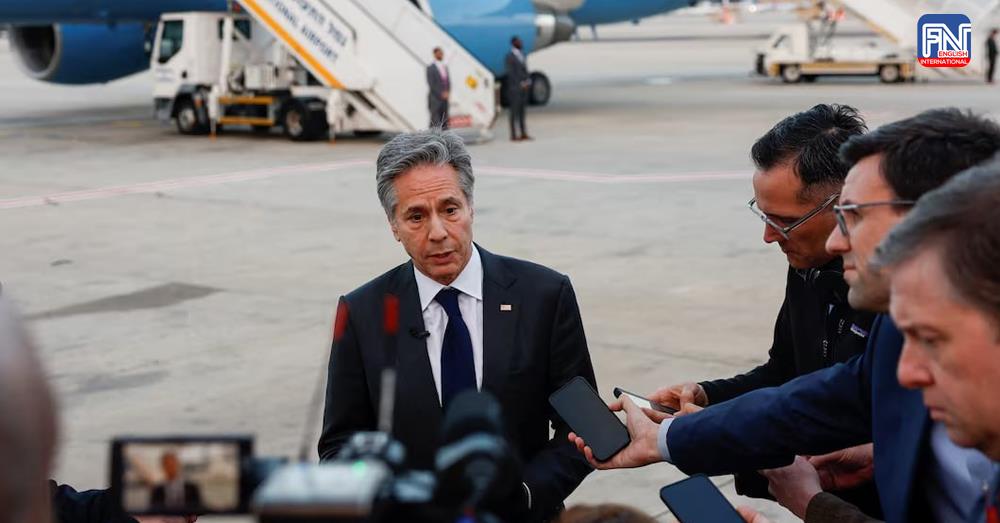TEL AVIV, March 22 (Reuters) - U.S. Secretary of State Antony Blinken warned Israeli Prime Minister Benjamin Netanyahu on Friday that Israel risked further global isolation if it attacks the Palestinian city of Rafah in the Gaza Strip.
Blinken met one-on-one with Netanyahu during a peace mission to the Middle East at a time of strain in relations over Israel's assault in Hamas-ruled Gaza, which has killed 32,000 Palestinians, with many more feared dead under the rubble, Gaza health authorities say.
"We share Israel’s goal of defeating Hamas... though, a major military ground operation in Rafah is not the way to do it," Blinken told reporters in Tel Aviv.
"It risks killing more civilians, it risks wreaking greater havoc with the provision of humanitarian assistance, it risks further isolating Israel around the world and jeopardizing its long-term security and standing," Blinken added.
Netanyahu said earlier that Israel would go it alone if Washington remained opposed to plans to push into Rafah against the territory's southern border fence, where more than a million Gazans have taken refuge in makeshift shelters.
The Israeli leader said he told Blinken that he appreciated U.S. support in its fight against Hamas, the Palestinian militant group, and that Israel recognises it needs to protect civilians.
"I also said that we have no way to defeat Hamas without going into Rafah and eliminating the rest of the battalions there. And I told him that I hope we will do it with the support of the U.S., but if we have to - we will do it alone," he said in a video statement to reporters.
While Israel has talked about destroying Hamas entirely in the past, it is unclear how they would be able to do so and experts doubt that is even possible.
Israel claims Rafah is the last bastion for Hamas militants, and that it has a plan to evacuate civilians before an attack, though it has not shared one publicly nor with close ally Washington.
Washington says a ground assault would be a mistake and cause too much harm to those displaced there.
Senior Israeli and U.S. officials were scheduled to meet in Washington next week, when the United States will present to the Israelis alternative ways to hunt down Hamas without resorting to a full-on assault in Rafah.
"We believe a major ground offensive is a mistake" and would be a "disaster," White House spokesperson John Kirby told a briefing.
The United States, Israel's closest ally, provides billions of dollars a year in military aid and regularly uses its diplomatic clout to protect Israeli interests.
In the latest diplomatic duel at the U.N. Security Council, Russia and China vetoed a U.S.-proposed resolution calling for an immediate ceasefire in Gaza and an Israel-Hamas hostage deal, saying it effectively green lights a Rafah invasion.
The text reflected a toughening of Washington's stance toward Israel - Washington had earlier in the war been averse to the word "ceasefire" - but Moscow and Beijing said it would still not do enough to restrain Israel.
They support an alternative text that Washington says is not strong enough in pushing Hamas toward ongoing diplomacy. Hamas last week released its own ceasefire and hostage-prisoner exchange proposal. France was also said to be working on an alternative resolution. The Security Council was due to vote again on Saturday.
In a statement, Hamas said it appreciated the veto by Russia and China, "who rejected the American project biased towards aggression against our people."
In Gaza, Israel claimed on Friday to have killed or captured hundreds of Hamas fighters in a five-day operation at the Al Shifa hospital complex, one of the only medical facilities even partially functioning in the north. Hamas and medical staff deny fighters were present there.





